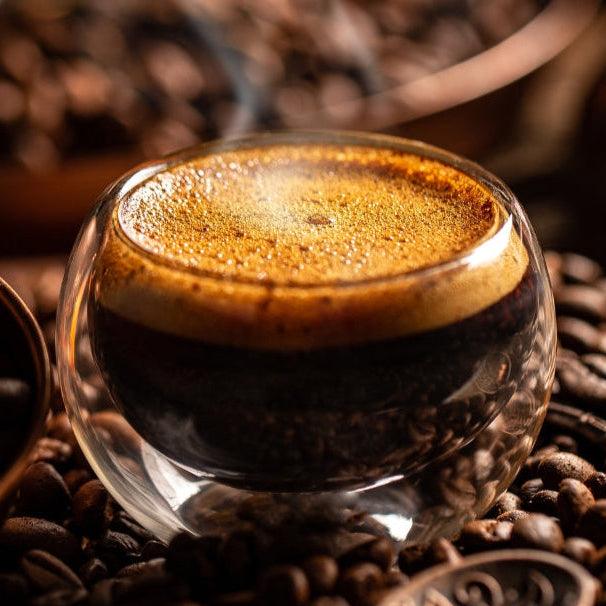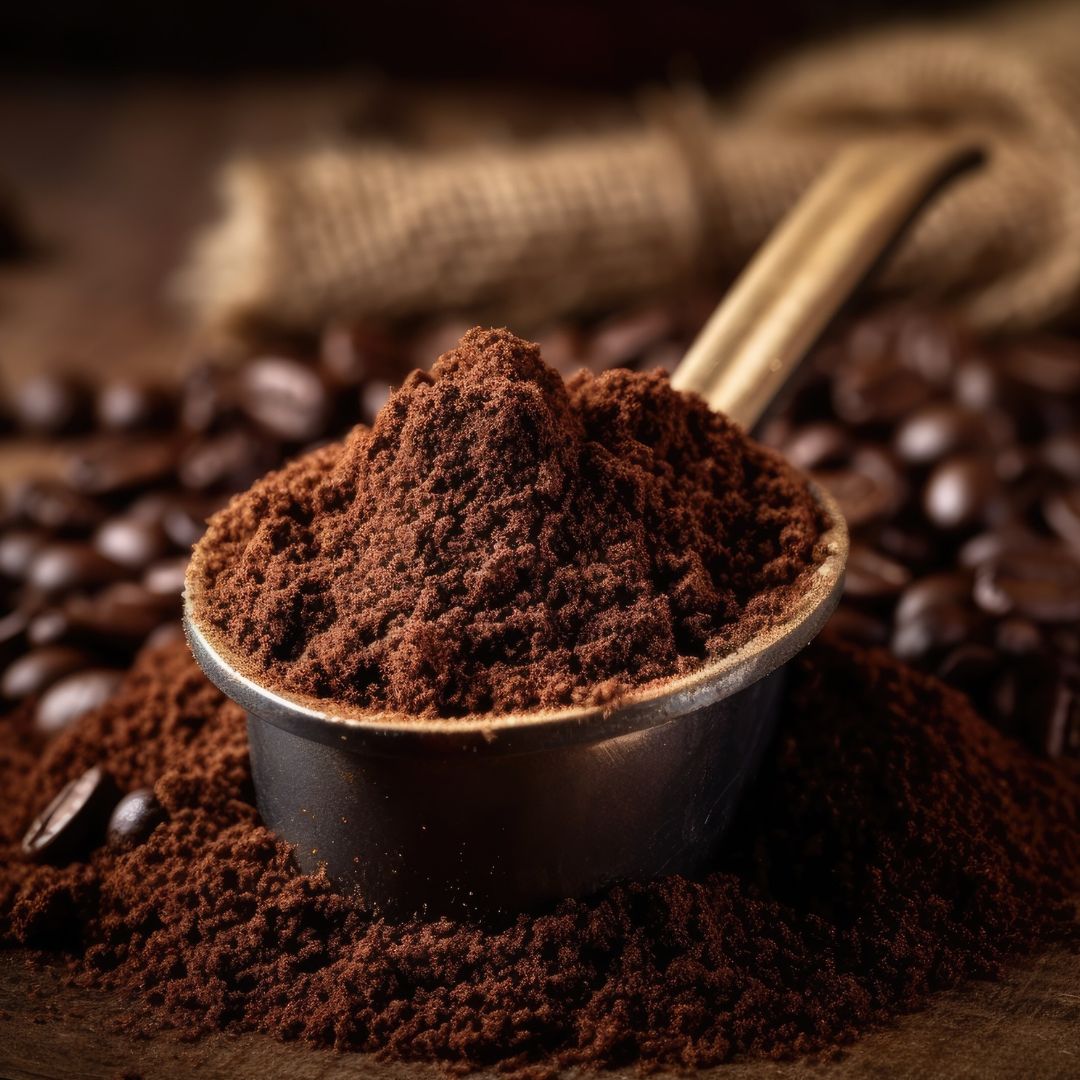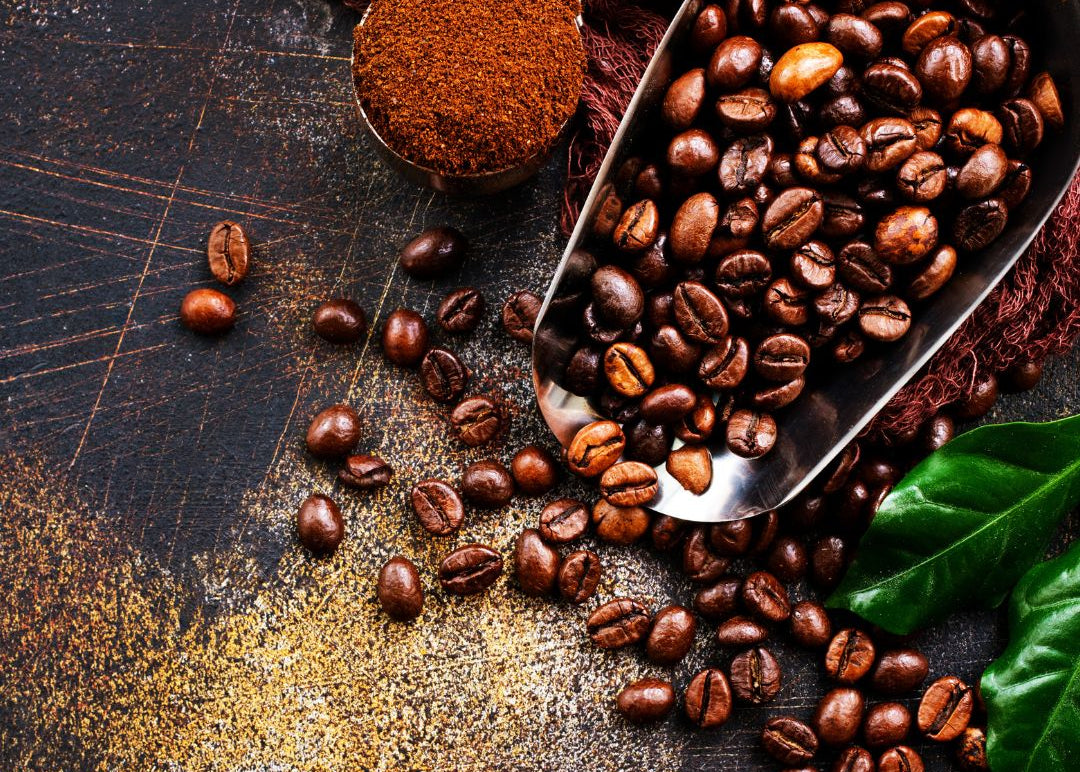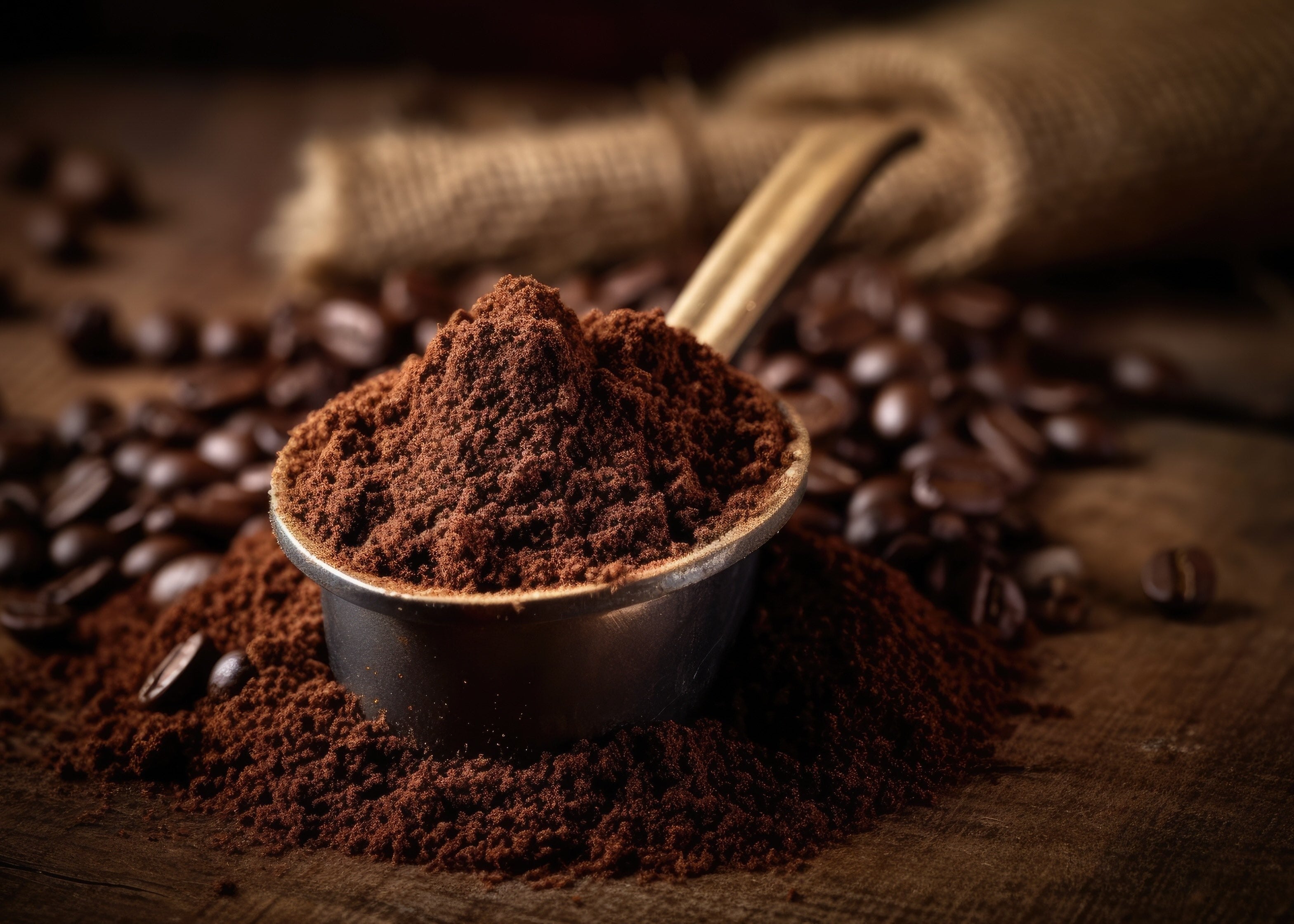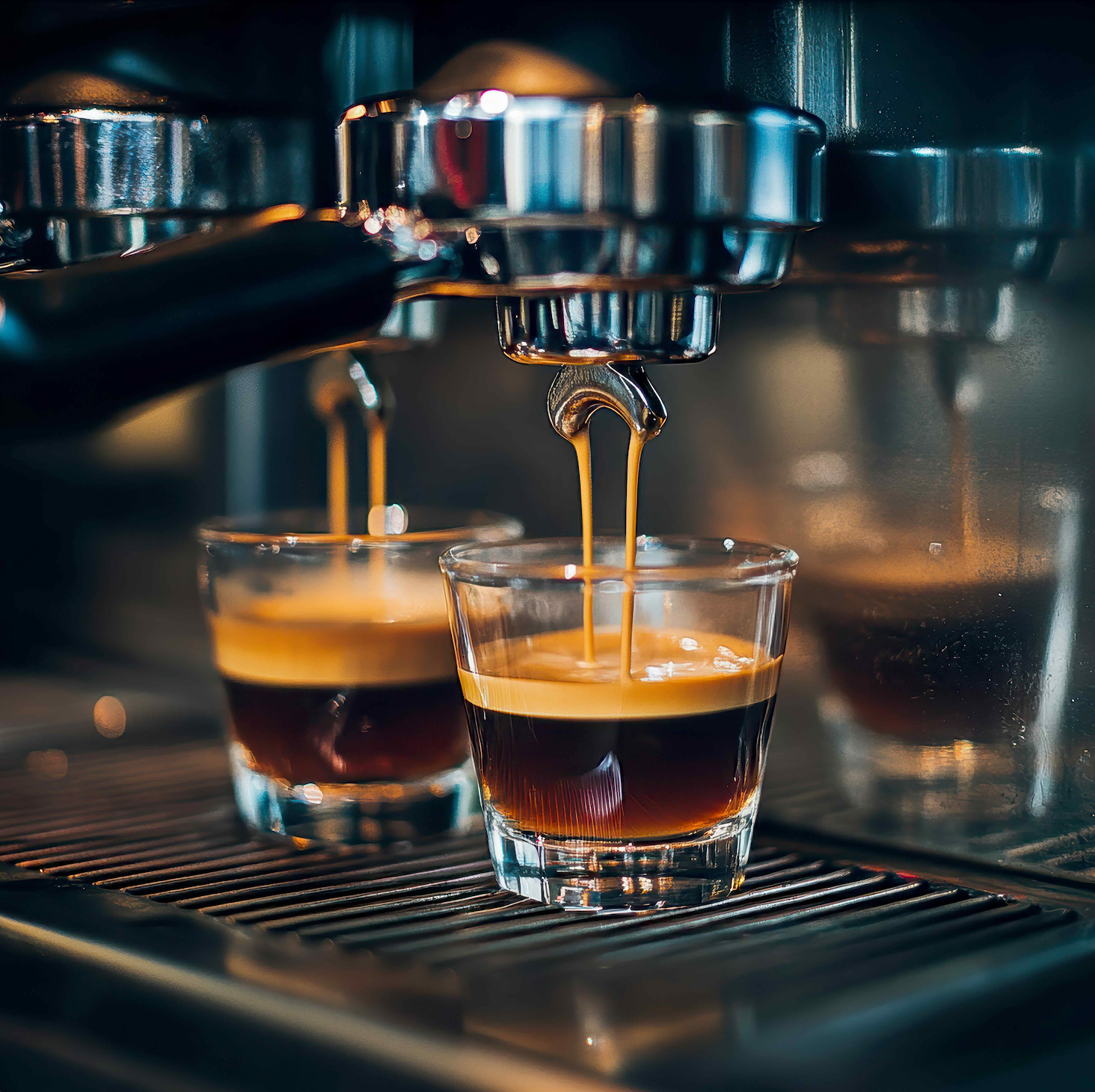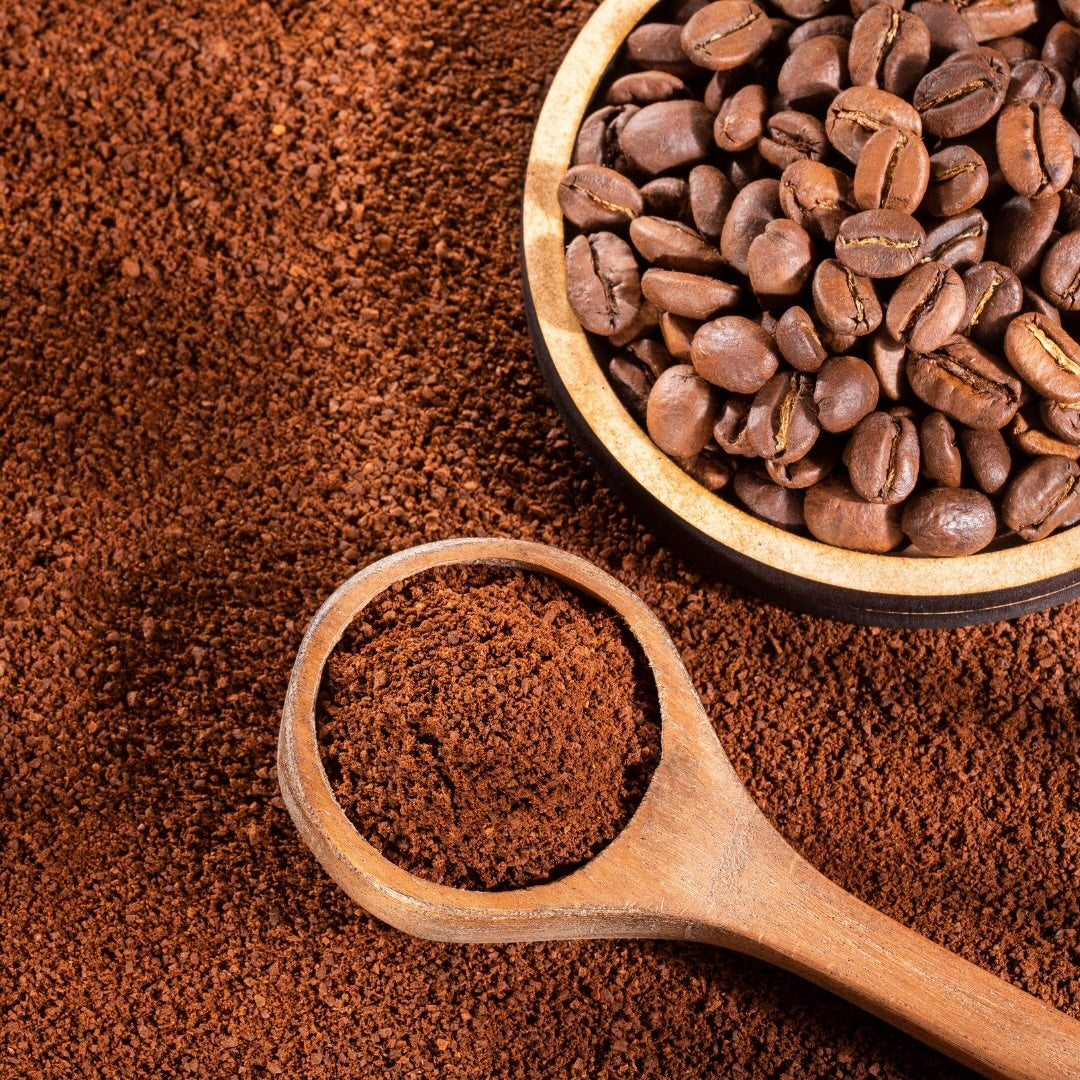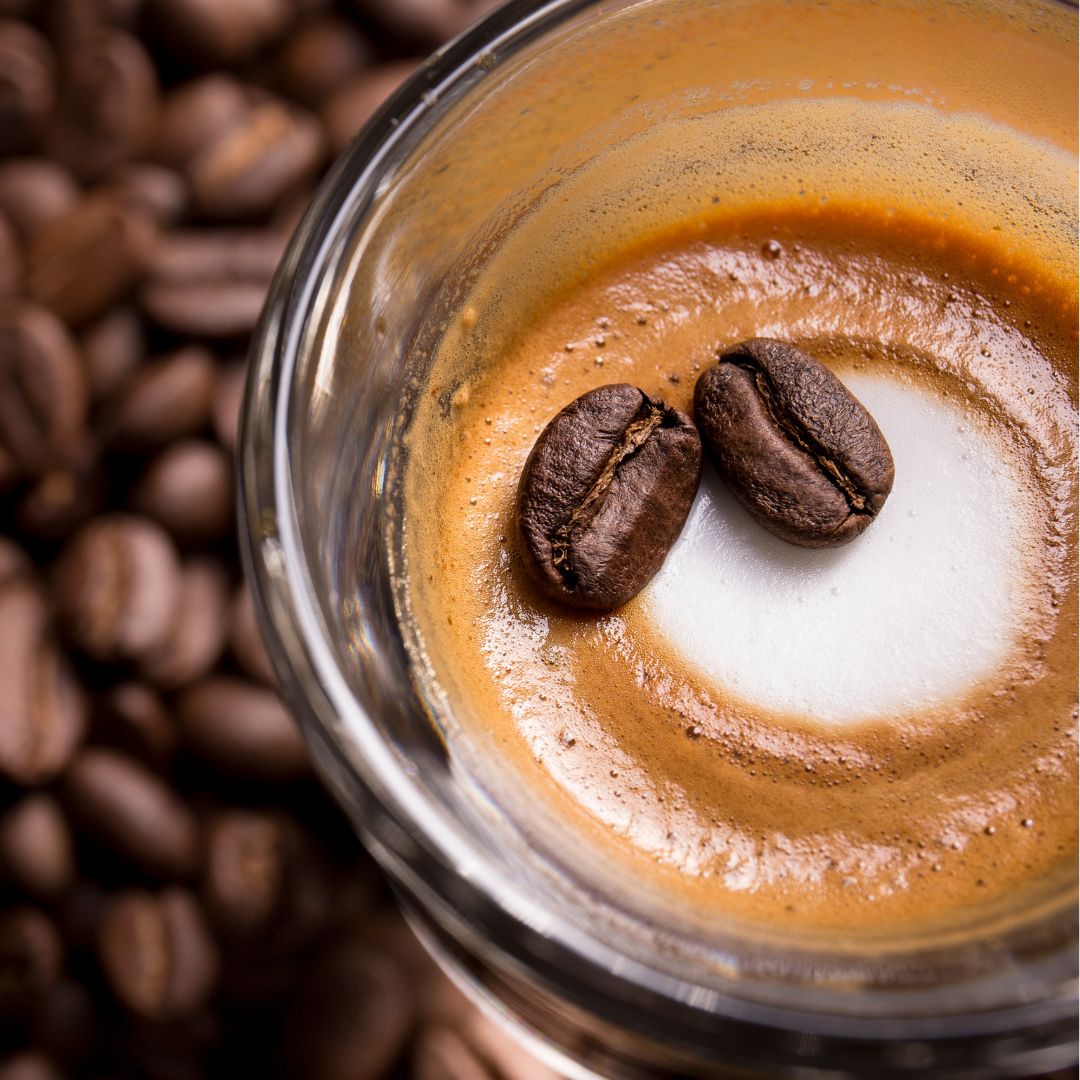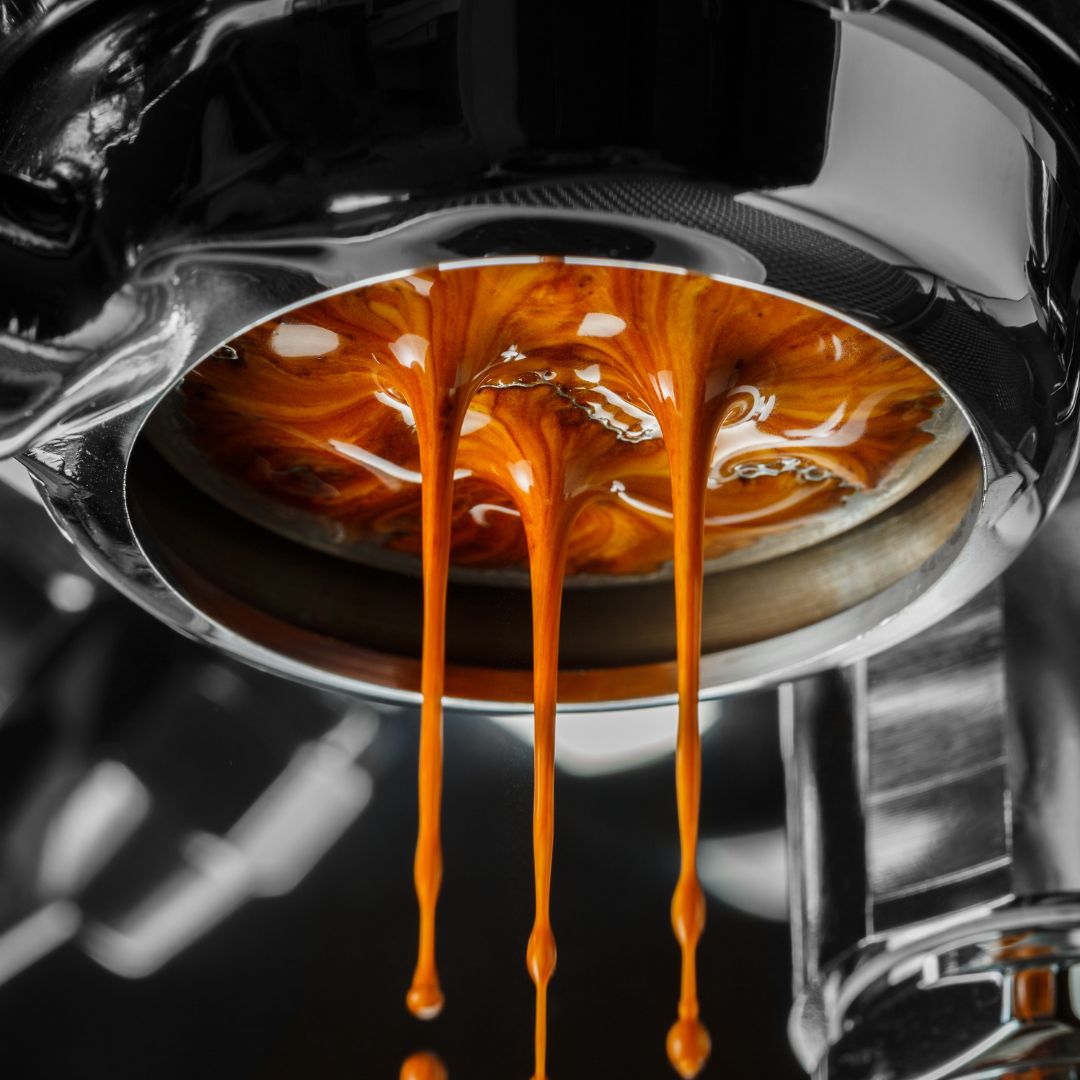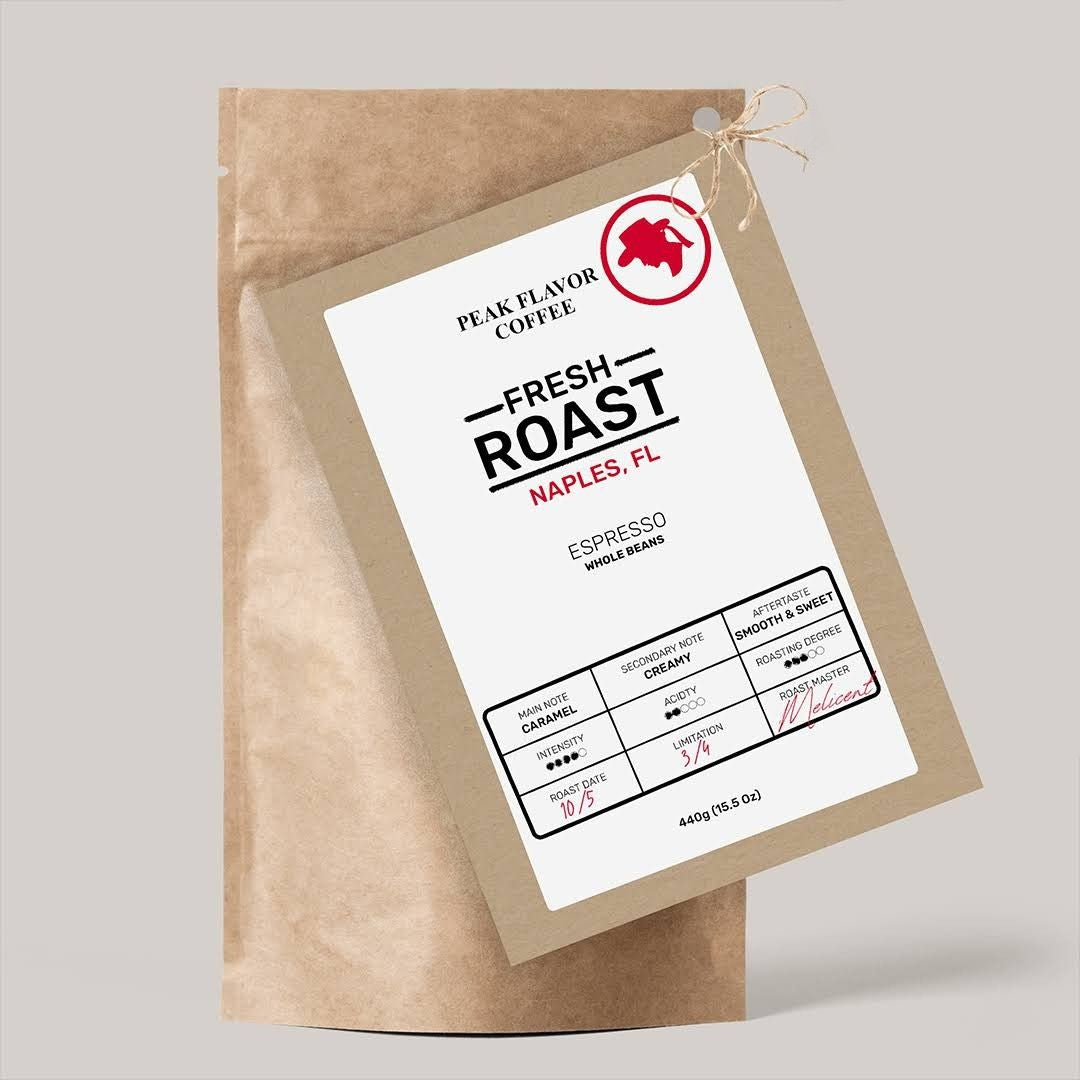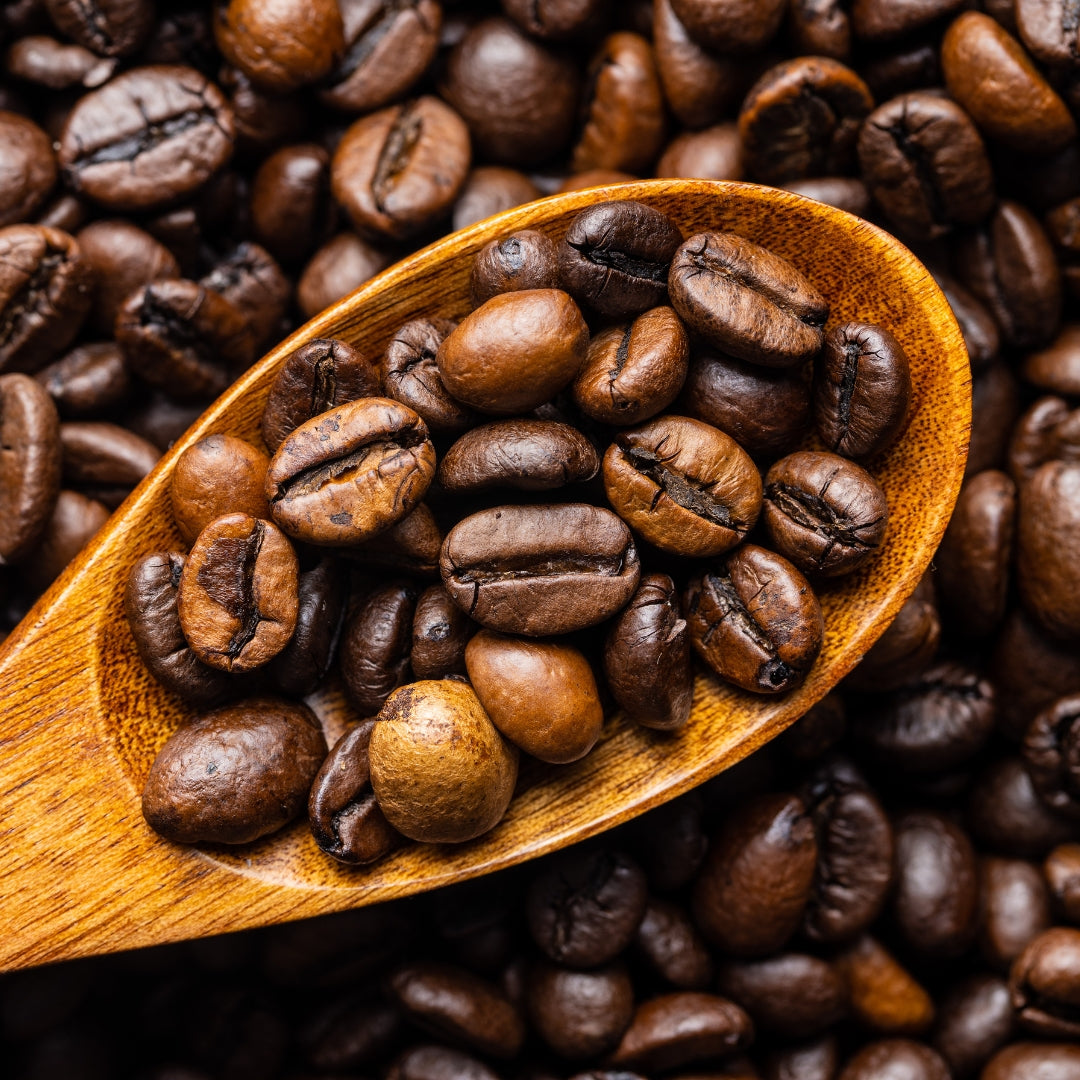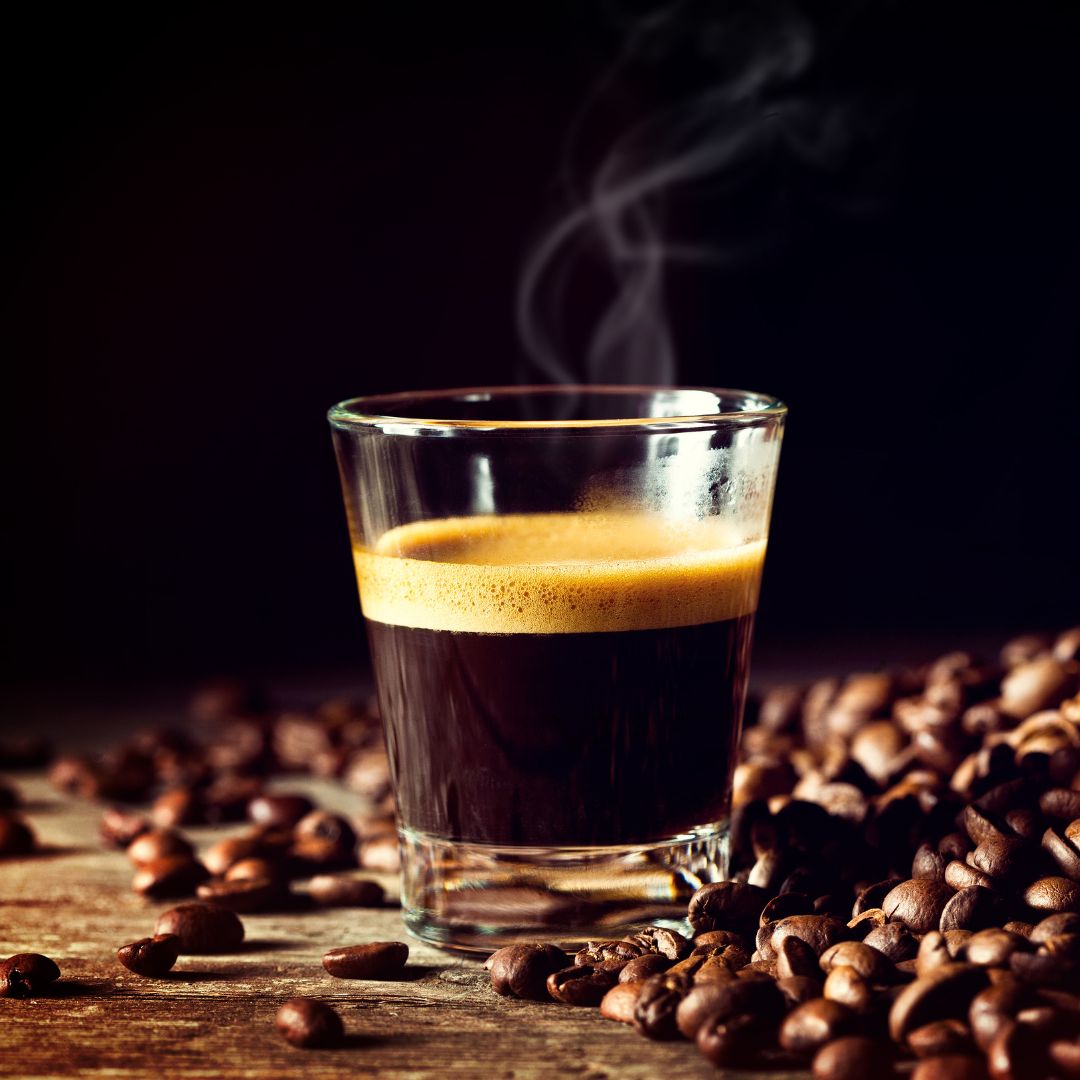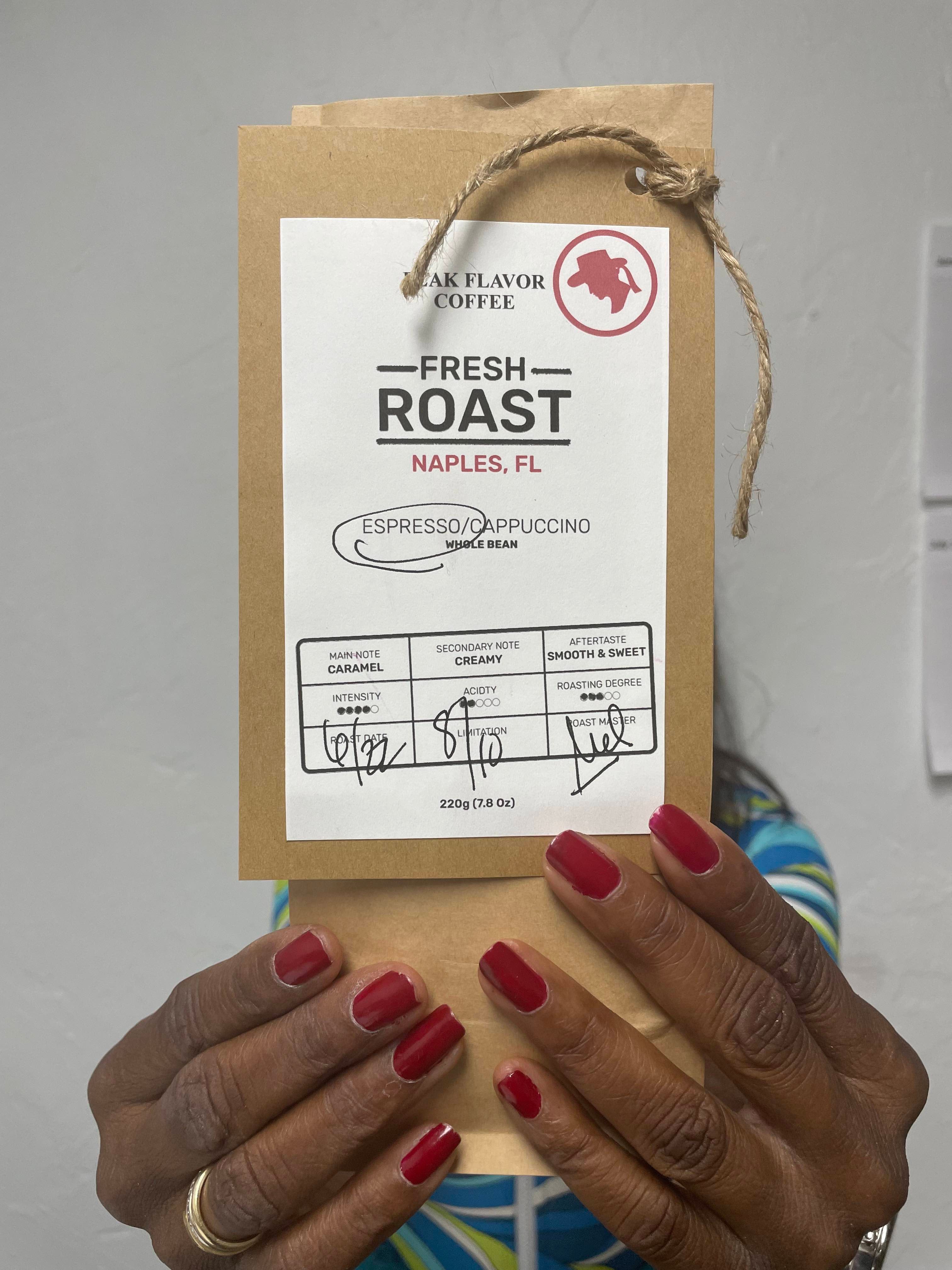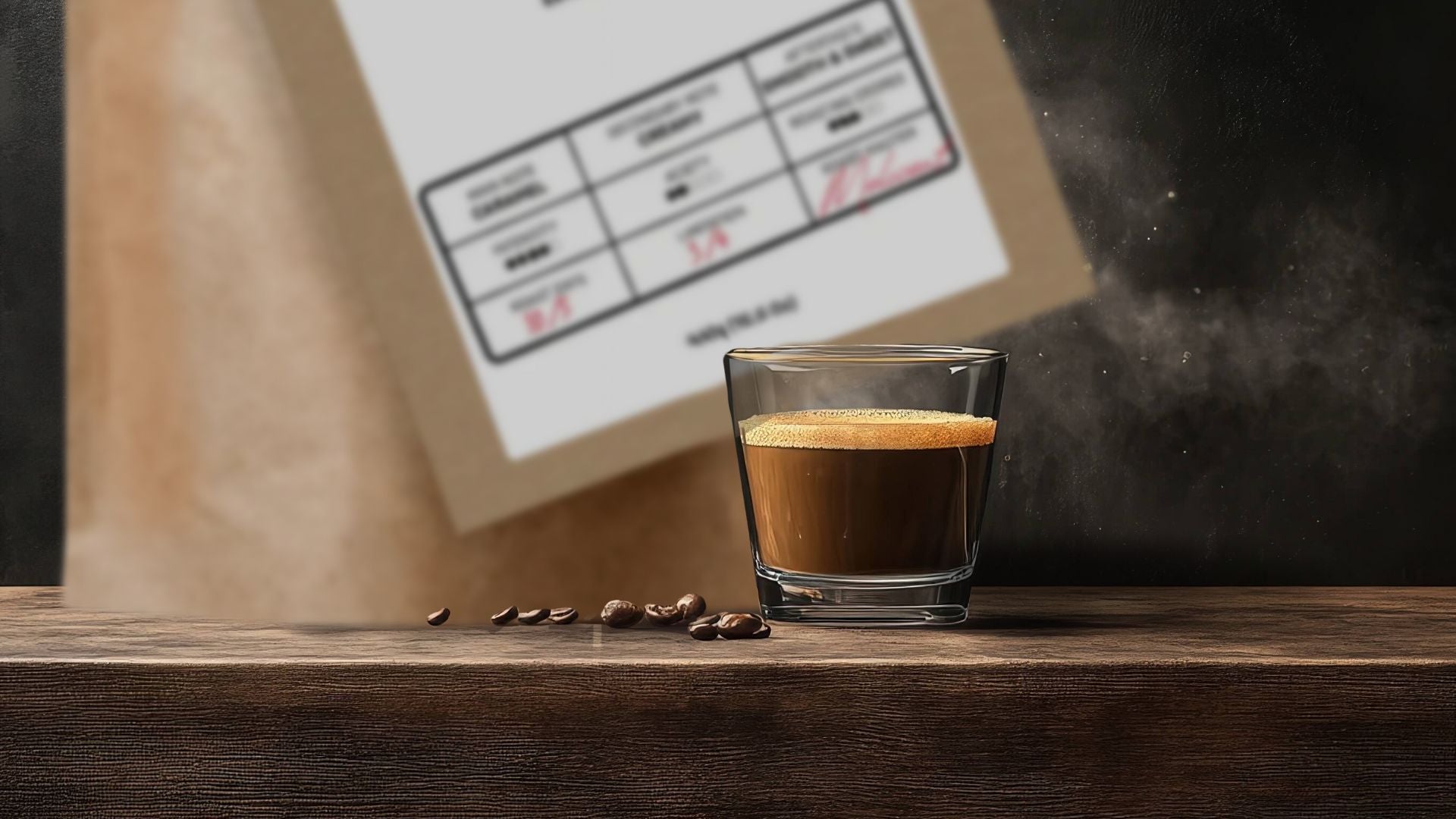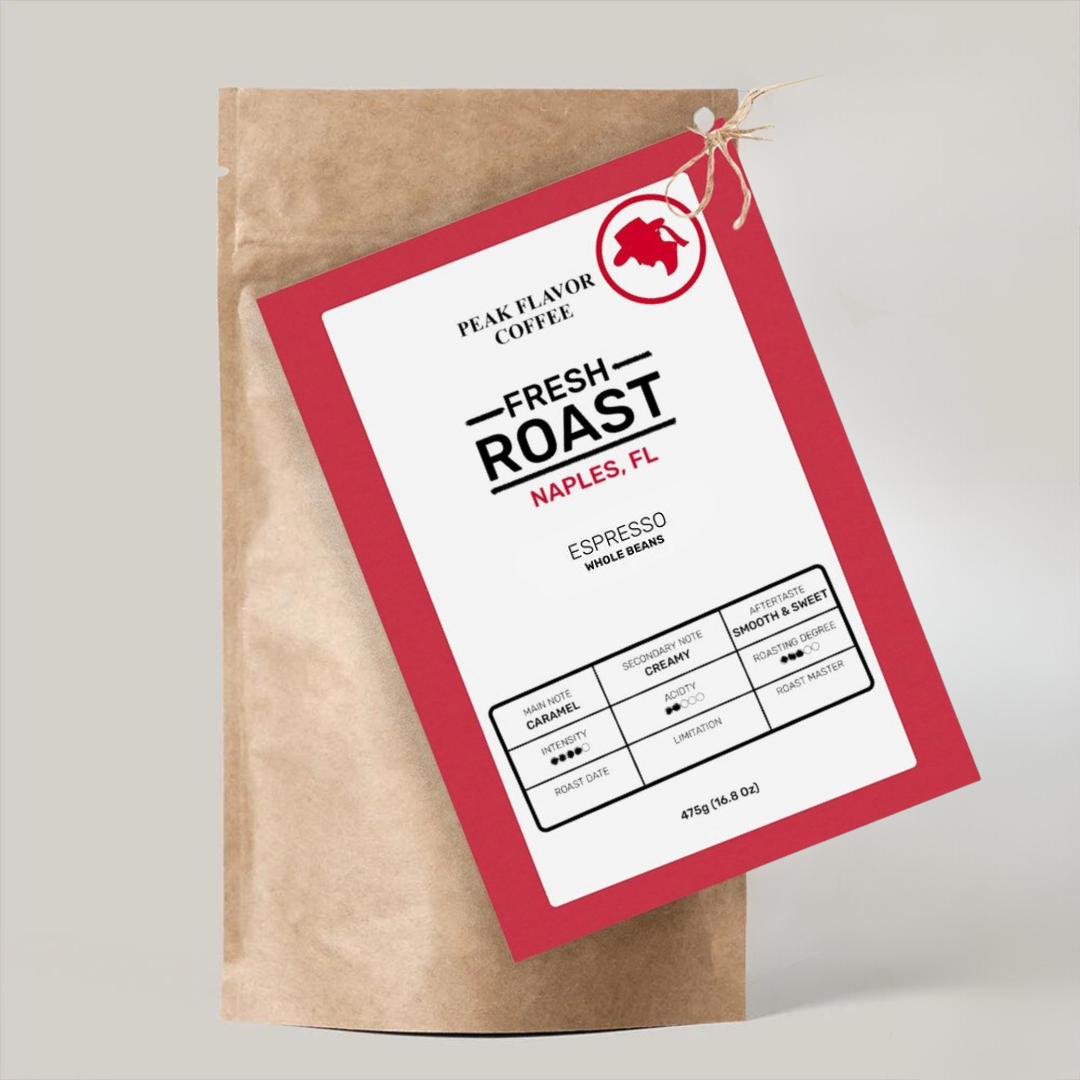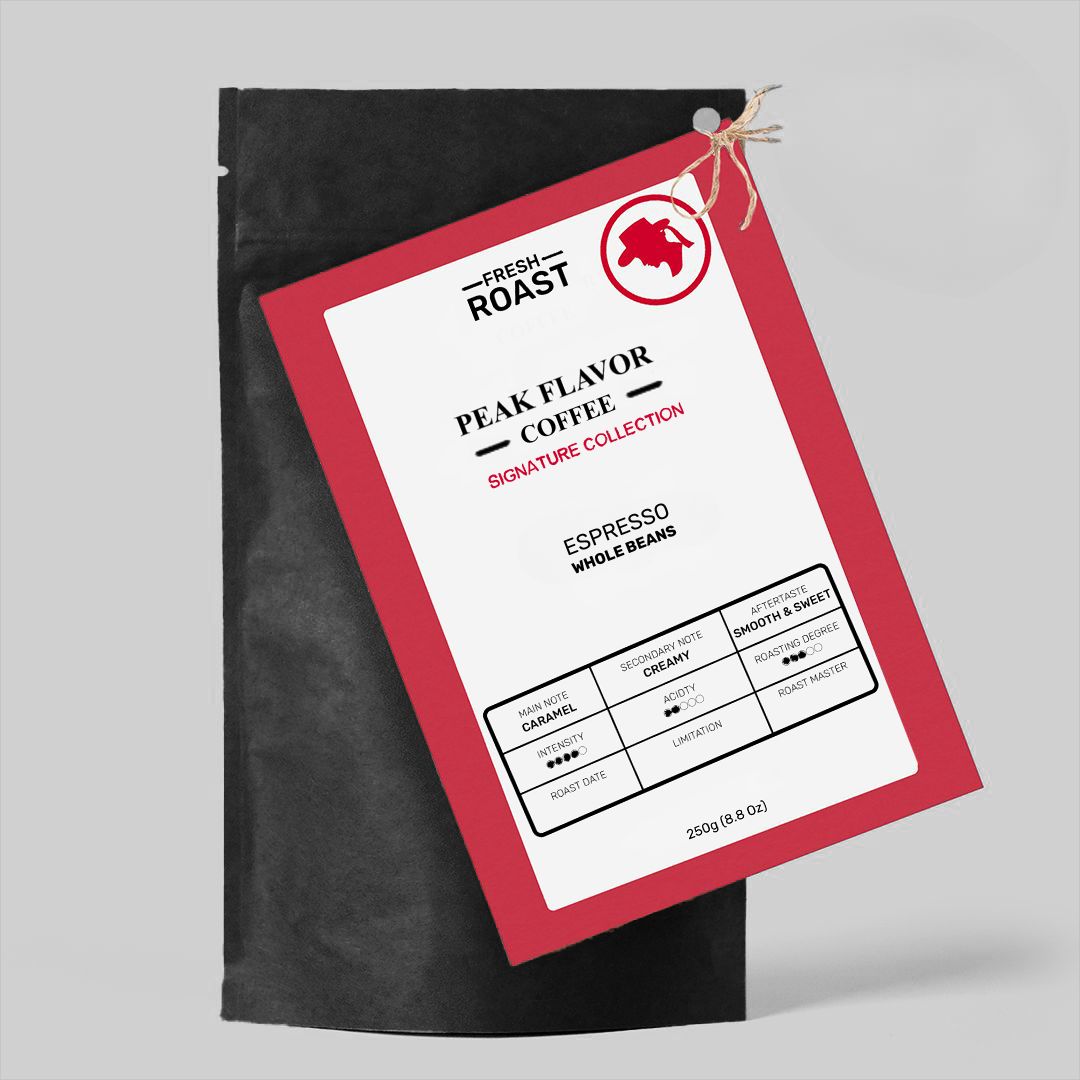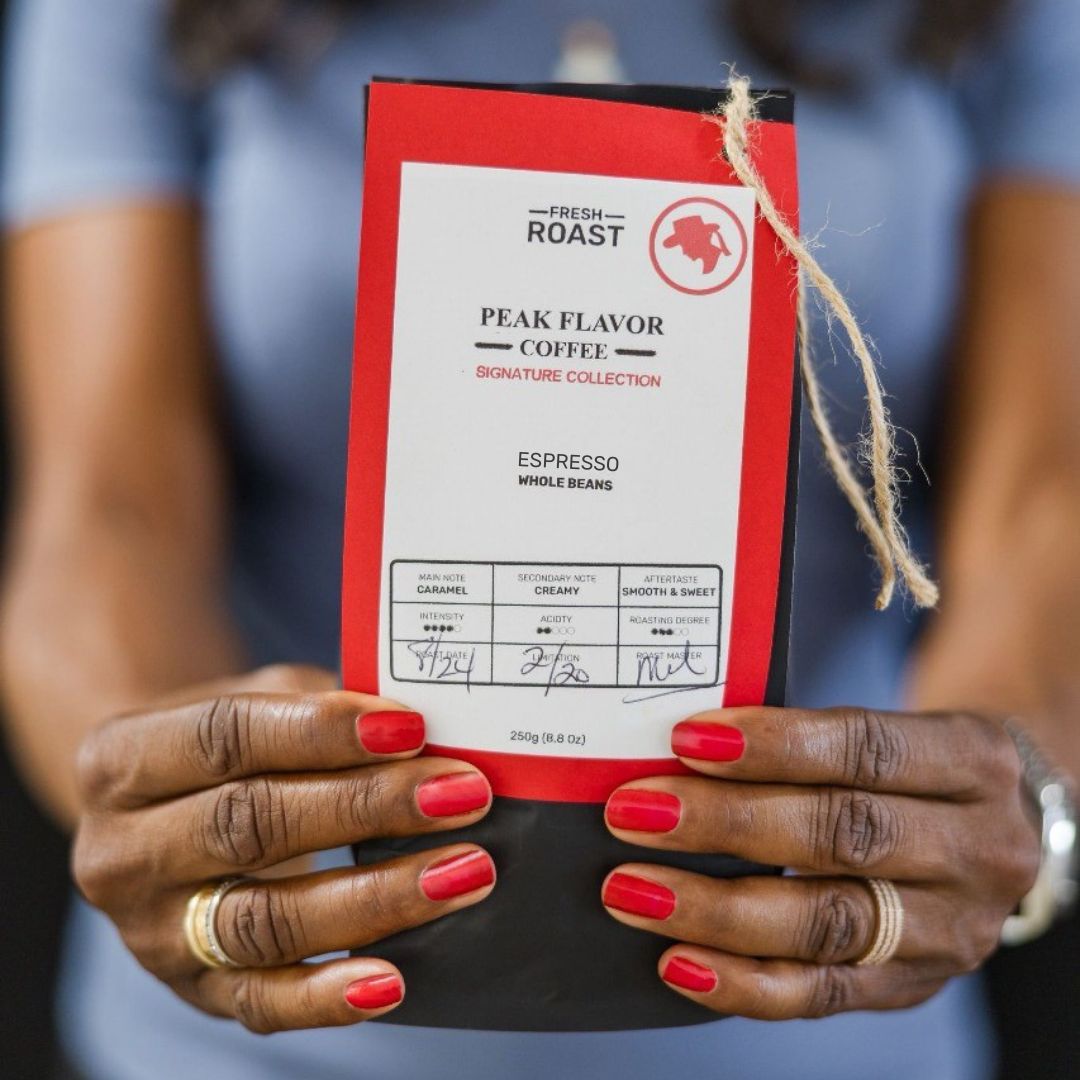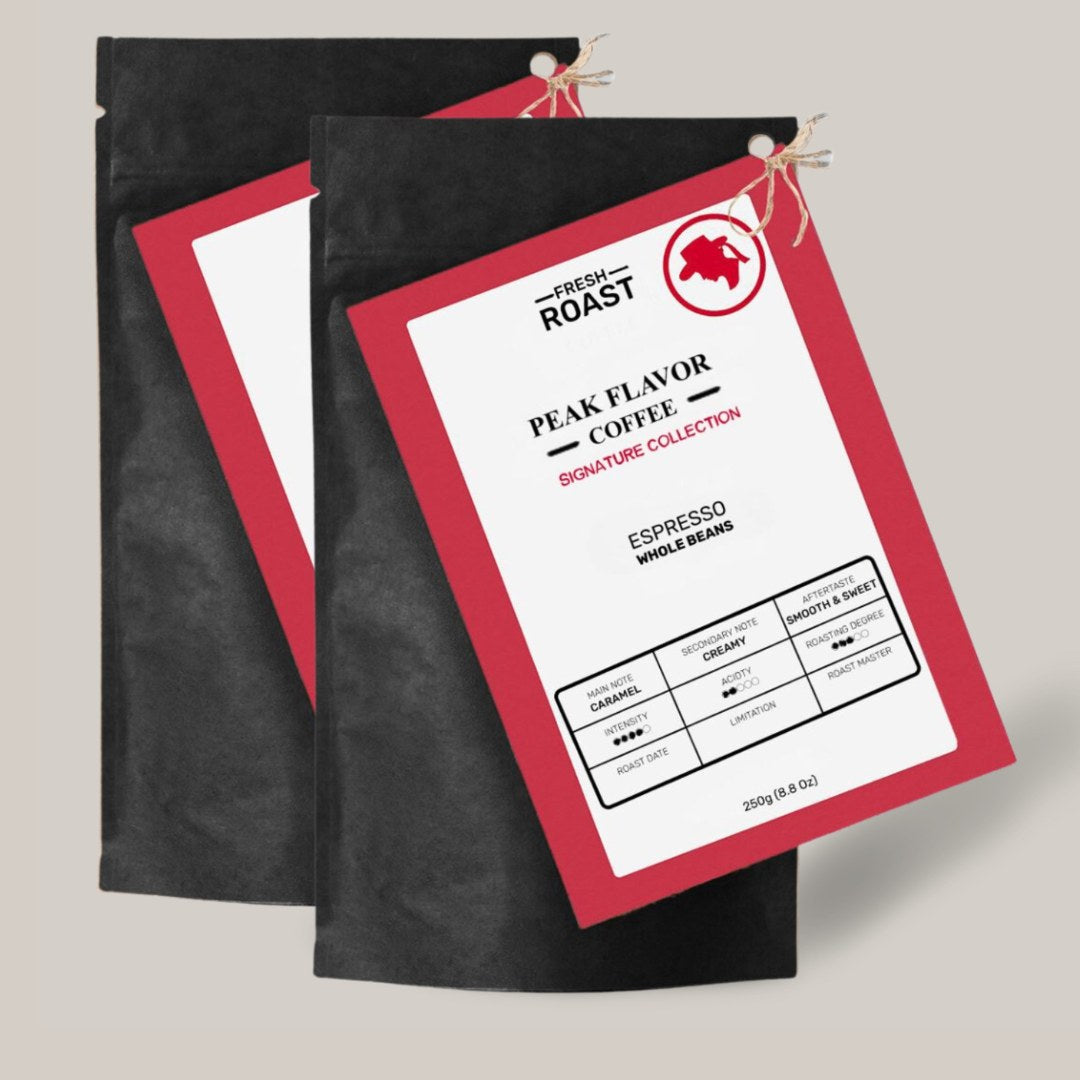In contrast to popular belief, you can actually see that your coffee beans are freshly roasted. Espresso from a fresh roast has a much thicker crema than espresso made from older beans. According to the Specialty Coffee Association’s Coffee Freshness Handbook, fresh roasted beans reach their best or Peak Flavor at about 8-14 days after the roast date. In contrast, coffee beans from the grocery store are on average 120 days old. When you compare an espresso from a fresh roast with a grocery-store roast, you will see the difference in crema. The fresh roast produces a thick crema full of flavor whilst the older grocery-store roast will produce less and thinner crema. Once you taste the fresh roast and compare it with old grocery-store roasts, you will not only see, but also notice a clear difference in taste. Like with everything else, fresh always tastes better. Try it for yourself and we are pretty sure you’ll never want anything else but fresh roast again.
What is coffee freshness?
When we talk about coffee freshness, we really refer to roasting freshness. Roasting is the most important step to caramelize green coffee beans into delicious, sweet, full-bodied espresso with thick crema. A fresh roast reaches its best or Peak Flavor when it is 8-14 days old. After that initial two weeks, time, temperature, oxygen and grinding affect the beans and the marvelous coffee aromas start to dissipate. After those 14 days, taste slowly deteriorates. Because grocery-store coffee is on average about 120 days old, you can imagine that a fresh roast will really taste better.
How does time affect coffee freshness and taste?
Time is the most important reason why coffee loses its freshness and taste. None of the processes that cause the loss of freshness, taste and aroma are instantaneous. But all of the processes start slow and accelerate over time. Over time, aromas and flavors escape from coffee beans with increased speed. A roast, which is 120 days old has significantly less than half the taste in comparison to a roast of 60 days old. Both of these old roasts, however, have significantly less taste and aroma as compared to a fresh roast that is only 8-14 days old and is just reaching its best or peak flavor at that time. Try it out for yourself and taste the difference.
How does grinding affect coffee freshness and taste?
Exposure to oxygen makes coffee beans lose flavor and aroma. They call this process oxidation. The same word is used when iron is exposed to oxygen over time and starts to rust. When we grind coffee beans and leave them exposed to air, oxidation is accelerated and the coffee grounds lose taste and smell even faster. That is why we recommend to always buy whole beans and grind those beans just before you brew them at home. Grinding at home just before you brew ensures that your coffee is exposed to oxygen a minimal amount of time and can therefore not be affected much. If you do not have a grinder at home, buy smaller bags and a courser grind for more freshness and coffee taste. Small bags take less time to consume and a coarser grind decreases oxidation. Most importantly though, make sure that any coffee you buy was never roasted more than 8-14 days ago. No matter what, that is your best chance to get coffee at its best or peak flavor.
Space around the beans is another reason why oxidation and loss of taste happens to coffee that is not anymore freshly roasted. If your coffee is finely ground, the space around the coffee particles increases dramatically and freshness deteriorates faster. If you prefer drip coffee and need to buy finer ground coffee because you don’t have a grinder at home, make sure you buy small packages that you can use in a couple of days, before oxidation takes away most of the taste and aroma. We recommend buying a hand-grinder if you want to preserve freshness. But most importantly, always buy freshly roasted coffee. Never buy coffee that was roasted more than 8-14 days ago. Any serious coffee roaster indicates the roasting date on their package to make sure you can have your coffee within 8-14 days after roasting. When coffee reaches its best or peak flavor.
How does temperature affect coffee freshness and taste?
Temperature is another important reason why coffee loses taste over time. At higher temperatures, molecules move faster. That is true for taste and aroma molecules as well. Logically, you should always keep your fresh roast at room temperature or lower, especially once you have opened the package. Avoid exposure of your coffee to direct sunlight and heat sources to minimize loss of freshness. And always try to buy smaller packages with a clear roasting date indicating your coffee was roasted 8-14 days ago. After that, coffee starts deteriorating fast in taste and smell.
In summary, you can recognize coffee freshness by the crema it produces when you make an espresso. Thicker crema generally indicates that your coffee is from a fresher roast. Coffee reaches its best or Paek Flavor when it was roasted 8-14 days before you brew it at home. Your coffee loses freshness over time, especially when exposed to oxygen. Make sure you minimize the time between grinding and brewing because grinding speeds up oxidation and decreases your coffee flavors.
Sources:

